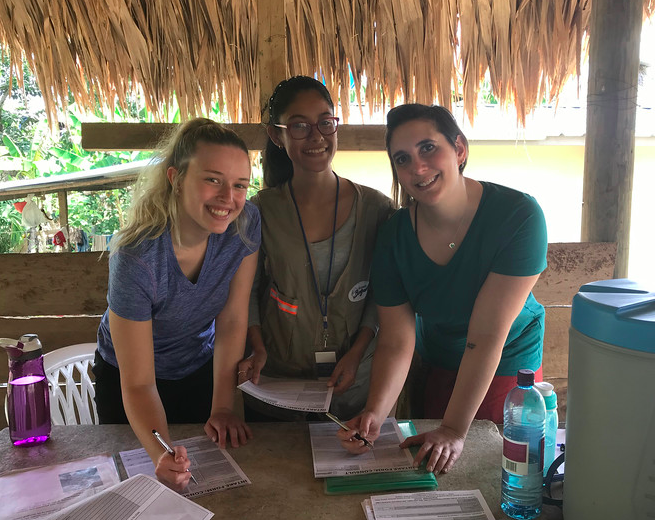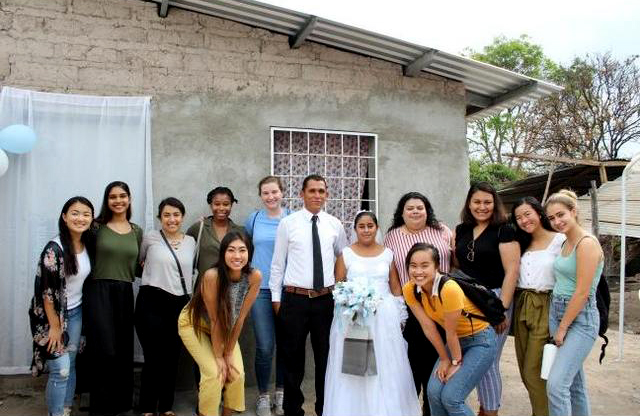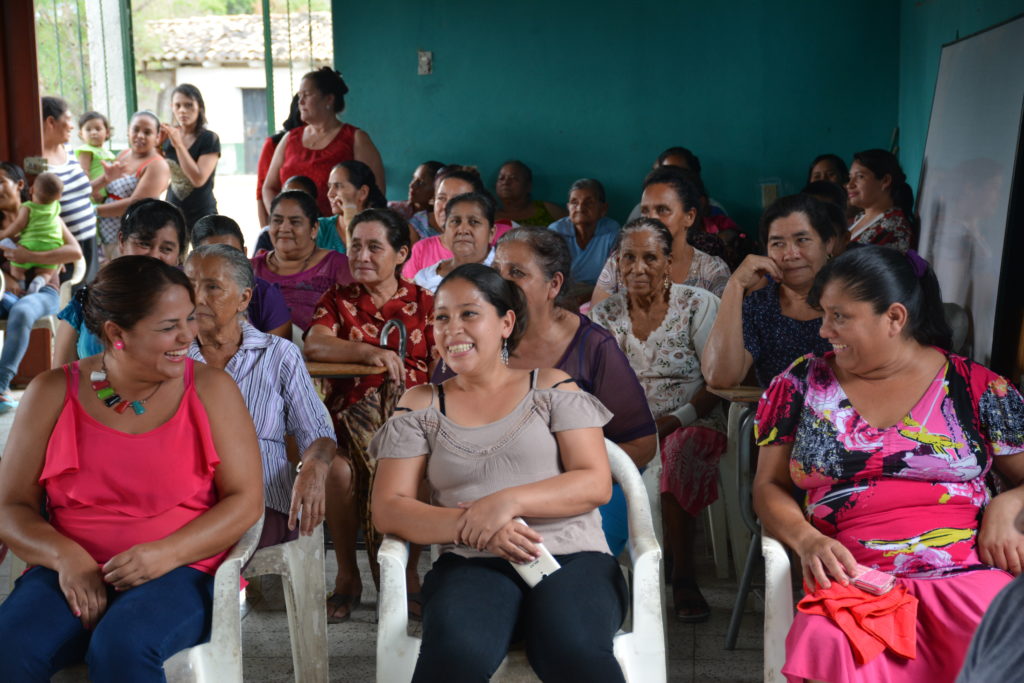Written By Teresa Rodriguez & Sabrina Sanchez, Honduras Program Associates
With the progress that we’ve made in human rights up until now, it can be difficult for us to imagine a time when they were not universal. Every December 10th, we celebrate the anniversary of the Universal Declaration of Human Rights (UDHR). Last year was the 70th anniversary since it was adopted by the United Nations General Assembly. But why is this document so historic and important to us today? How does it relate to Global Brigades’ Legal Empowerment program?
Why should you celebrate International Human Rights Day? Here are 5 reasons why human rights are an instrument to the larger global society and why this day is a cause for celebration!
1. The UDHR is the foundational document of the International Human Rights Law.
The UDHR is influential. The legally binding international human rights treaties it includes have laid the groundwork for how the law can and should uphold basic rights and freedoms inherent to all beings. The UDHR has helped shape how the law can look like across the globe. Through treaties, agreements, declarations, bills, and covenants, the UDHR has influenced the overall legal framework and helped set the precedent for a fairer, more just society.
2. Human rights are relevant, every day.
Human rights are universal. There are no boundaries to which rights are guaranteed. Everyone is entitled to their equal and inalienable rights. The idea behind the implementation of a universal set of rights is so they can be applied to an individual simply because they are human, regardless of race, gender, nationality, and citizenship or lack thereof.
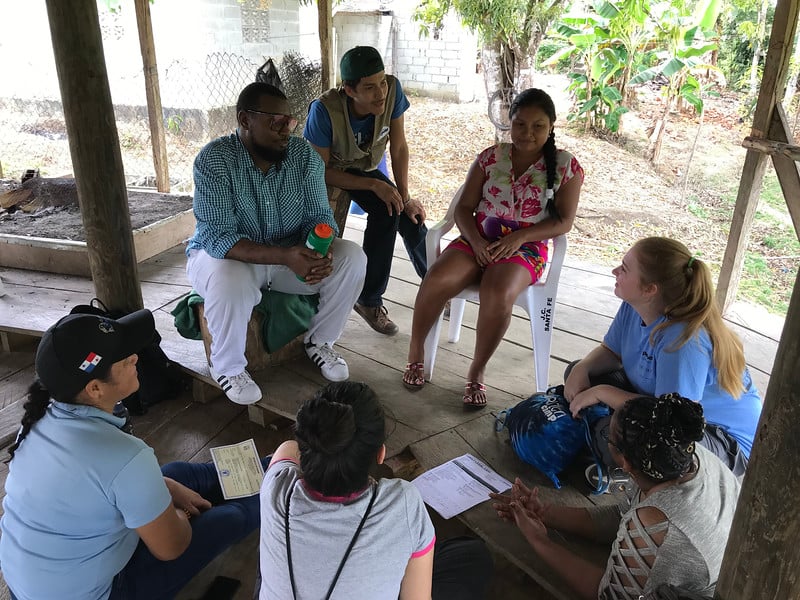
3. The principles of the UDHR can be used to govern grassroots justice and the global legal empowerment movement.
To directly quote an Open Global Rights article, “Violations or deprivation of human rights are often a barrier to legal empowerment. Legal empowerment programs must adopt specific strategies to tackle these barriers and encourage meaningful participation from marginalized communities. Towards this end, human rights lawyers are expanding their work beyond traditional legal representation to include legal empowerment interventions that create safe social and political spaces for communities to (re)claim their rights.”
4. Everyone is entitled to all freedoms listed in the UDHR.
Article 7, the freedom to equality before the law, and Article 17, the right to own property, are relevant to the legal challenges many rural Hondurans experience. Because some Global Brigades partner communities lack access to legal education and basic resources that help people better navigate the legal system, these human rights violations are common. A core component of our Legal Empowerment program methodology is the inclusion of interactive and community-based education. These educational charlas serve to increase awareness and strengthen connections to abstract concepts of human rights and justice by illustrating how they directly apply to everyday realities. After attending an educational workshop, community members are able to utilize their new knowledge of the law to resolve the complex violations they may face.
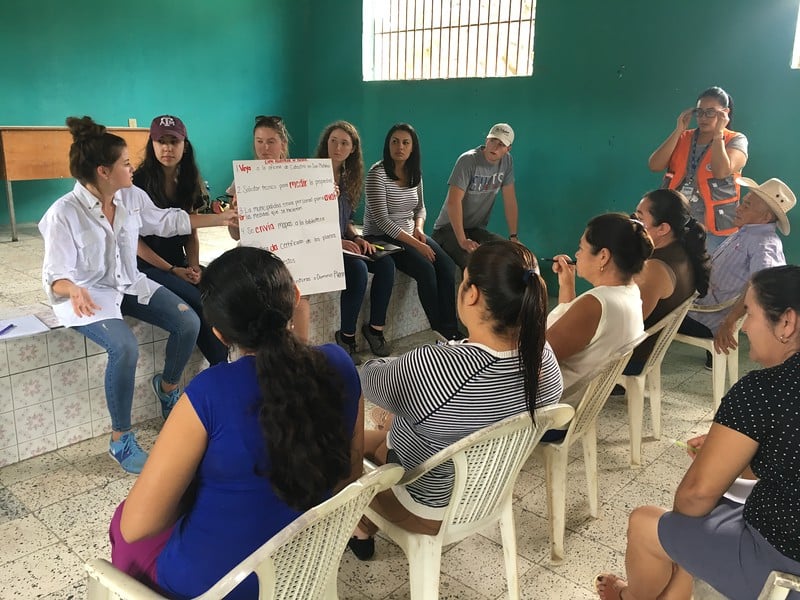
Texas A&M University Legal Empowerment Brigade presenting an educational workshop in El Espinito, Honduras
5. Sustainable Development Goal (SDG) 16
The first thematic review of SDG Goal 16 took place at the High-Level Political Forum in July, 2019 at the United Nations General Assembly Summit (UNGA 2019). This global discussion is proof of the increased recognition that “peace, access to justice, and effective, accessible and accountable institutions – the three pillars of Goal 16 – are a critical link in the sustainable development chain and integral to the transformative change sought by the 2030 Agenda.”
To witness firsthand the complexities and intricacies of international legal systems and participate in program implementation visit www.globallegalempowerment.org to start or join a Legal Empowerment Chapter at your university!

